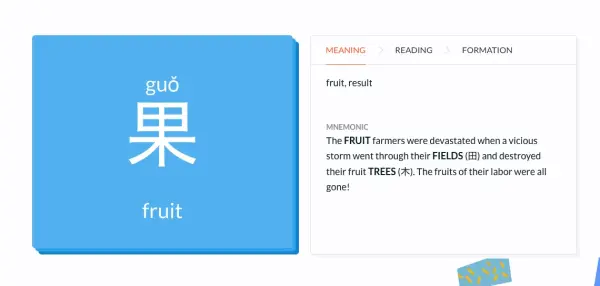
Chinese For Beginners: Should I Learn Mandarin Or Cantonese?
Did you know that Chinese is spoken by billions of people worldwide?
But wait, did you also know that Chinese is more than just one language? It includes different dialects like Mandarin Chinese and Cantonese.
With so many Chinese dialects, it can be hard to choose. But don't worry; we got you! The most common two for learners are Mandarin and Cantonese.
In the rest of this article, we will explain the reasons to learn Mandarin or Cantonese and some effective tips to start learning Chinese.
Why should I learn Mandarin?
1. Communication in China is easier
Learning Mandarin is a great way to communicate with most people in China, as it has been the official language of mainland China since the 1930s.
Not only that, but it's also the language of choice in most official media channels, such as movies, music, and television programs.
Even though China has various dialects throughout its nation, with Mandarin as the official language, it allows clearer communication.
Additionally, the government requires public schools to teach Mandarin, and all public media channels use Mandarin to maintain verbal communication possibilities.
With Mandarin widely known by all citizens, it is a useful language for language learners to master.
2. Mandarin is popular worldwide
If you want to go global, you are better off learning Mandarin. It is the second most spoken language in the world, only second to English.
What about Cantonese? It is hard to estimate Cantonese speakers, but it is much fewer than in the Mandarin language.
With the growing number of Mandarin-speaking Chinese living abroad, knowing Mandarin can also help you communicate effectively, which is important in this global economy.
As a new Chinese learner, you can build a strong background in Mandarin and then take up Cantonese to maximize your communication potential.
Additionally, more and more Cantonese speakers are learning Mandarin because of its popularity and opportunities.
3. Mandarin pronunciation is easier than Cantonese
If you're an English speaker, you might find Mandarin easier to learn than Cantonese.
One reason is that Mandarin has only four tones, while Cantonese has six to nine tones. So listening to spoken Cantonese can be hard to differentiate individual words, making Mandarin's pronunciation easier and faster to grasp.
At the same time, Cantonese has more consonant sounds, vowels, and syllables than Mandarin, which can be challenging for language learners to recognize Cantonese tones.
Most Chinese characters are syllables, which consist of a compound vowel and one initial consonant. Cantonese has 20 consonant sounds with 6 long and 4 short vowels. The consonants p, t, ts, k, and kw are pronounced with an aspiration.
On the other hand, Mandarin has 21 consonant sounds and 5 compound vowels. Although the pronunciation of Mandarin may still be challenging, the smaller number of tones makes it easier to learn for some people.
4. Mandarin characters are less complicated than Cantonese characters
While both Mandarin and Cantonese are Hanzi Chinese, they use different writing systems. Mandarin tends to use simplified characters, while Cantonese uses traditional characters.
With simplified characters, you won't have to deal with the complex traditional characters' strokes in Mandarin.
For example, the word "dragon" in Mandarin has only five strokes: 龙, while in Cantonese, it has 16 strokes: 龍!

Dragon in traditional Chinese

Dragon in simplified Chinese
So, if you want to learn a Chinese dialect that's widely spoken and has relatively simpler characters, then Mandarin might be the way to go.
Why should I learn Cantonese?
1. Career opportunities
While Cantonese is less widely spoken than Mandarin, it is the dominant language in Hong Kong, Macau, and the Guangdong province, including Guangzhou (formerly Canton).
If you want a career in any of these locations or have a business opportunity there, speaking Cantonese can open up this opportunity for you.
2. Cantonese grammar is easier than Mandarin grammar
Even though both Cantonese and Mandarin are Chinese, they have different grammar and sentence structures.
Many non-native Chinese speakers think Cantonese has an easier grammar structure than Mandarin.
Cantonese follows a clear pattern that makes it more consistent, while Mandarin requires adjusting the sentence structure depending on the subject and emotional meaning, making Mandarin more challenging to learn.
Cantonese Vs. Mandarin native Cantonese speakers
3. A better understanding of Cantonese culture
The Cantonese culture is rich and diverse, with a long history in art, music, films, and literature.
Language and culture are intertwined with one another. So by learning Cantonese, you get to learn and understand parts of the world that speak Cantonese, such as Hong Kong, Macau, and the Guangdong province, including Guangzhou (formerly Canton).
Additionally, if you ever travel to these parts of the world, you can test your Cantonese skill!
So, if you want to start with a more straightforward language, Cantonese is a good choice.
4. Travel opportunities to different parts of the world.
Learning Cantonese can give travelers unique opportunities to travel for themselves or to study abroad.
While traveling, it is much more fun to communicate with locals, find out their favorite Cantonese cuisine, explore the local markets, and have an easier time navigating the local transportation system.
What's even more fun is when you visit during cultural significance festivals and holidays, such as Mid-Autumn Festival, Dragon Boat Festival, and Chinese New Year, you can participate and understand what is happening.
What are some tips to start learning Chinese?
1. Use an online language platform
Learning Chinese can be challenging, especially when memorizing characters and tones. But fear not, as Pandanese is here to help! Pandanese is a Chinese online language platform and has the Pandanese App that can assist Chinese learners in mastering Mandarin mnemonics.
With Pandanese, you can access an unlimited collection of flashcards that make learning Chinese fun and effective. Here's how it works:
Begin your lesson and receive a batch of flashcards, each with a Chinese character, its meaning, and a fun fact to help you remember vocabulary better.
After studying the vocabulary, take a quick quiz by pressing the "Start Quiz" button. You'll be given a random card that you've seen before and asked to fill in the correct answer.
After finishing the quiz, you can move on to the next batch of flashcards and continue learning Mandarin characters. It's important to review them repeatedly to make sure you remember them.
Pandanese uses spaced repetition, frequently repeating the flashcards you've learned. This method is the most efficient and effective way to retain a large amount of information and convert it into long-term memory.

Pandanese's learn function with mnemonics for fruit
Pandanese can be a great tool to help you master mnemonics and make your Chinese learning journey more fun and effective.
2. Practice with native speakers
Speaking with native speakers is one of the most effective ways to learn Chinese. It allows learners to engage in real-life conversations, improve their listening and speaking skills, and understand the nuances of the language and cultural customs.
One way to practice with native speakers is through language exchange programs. These programs match language learners with native speakers interested in learning their language—a perfect opportunity for learners to practice Mandarin with someone fluent. Language exchange programs can be found online or through local language schools.
Another way to practice with native speakers is by finding a Chinese language partner online. Many websites and apps allow users to find language partners interested in practicing Mandarin, allowing learners to practice Mandarin with someone with similar interests and schedules.
3. Watch Chinese TV Shows and Movies
Watching Chinese TV shows and movies is a great way to improve listening and comprehension skills, as it is a fun way to learn new Chinese vocabulary and sentence structures. Additionally, watching TV shows and movies can expose learners to Chinese spoken in different accents and contexts.
Some streaming services, websites, and apps offer Chinese TV shows and movies with subtitles. With subtitles, it can be helpful for new Chinese learners. Learners who want to improve their listening skills can try watching without subtitles or with Chinese subtitles to improve their reading skills.
Some of my personal favorite TV shows and movies include "Story of Yanxi Palace," "Ip Man," and "Three Lives Three Worlds, Ten Miles of Peach Blossom."
Many Chinese-language dramas, game shows, various genres from Chinese fantasy films and vampire horror films, and variety shows are popular in China and can be found on Netflix, Chinese streaming services, or on Chinese channels on Roku.
Final thoughts
So, the answer to "Should I learn Mandarin or Cantonese?" will depend on what you plan to do with it once you have mastered it. Either language is hard to learn in their own right.
No matter which dialect you choose to learn, there are many free Chinese resources available online and offline that can assist learners in mastering the language. With enough hard work and dedication, learning either dialect can open up a world of possibilities
The easiest way to learn Chinese & build vocabulary

